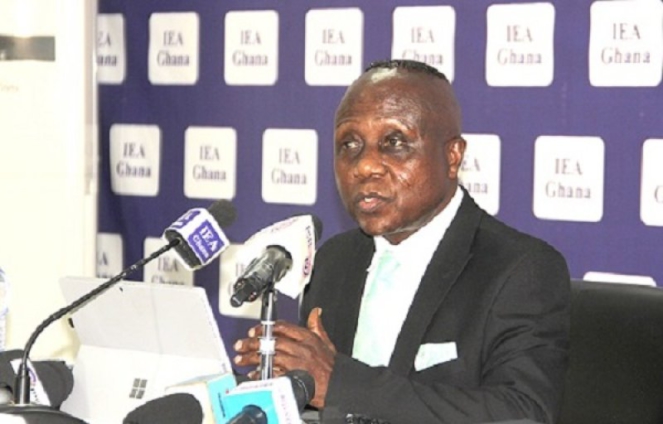The Institute of Economic Affairs (IEA) has welcomed Bank of Ghana’s (BoG) endorsement of its proposal to cap government borrowing to help rein in the public debt.
According to the IEA, the Governor of the BoG, Dr. Ernest Addison as part of his press briefing on 6th October, 2022 said that he “supports discussions on capping borrowing”.
The institute argued that the endorsement couldn’t have come at a better time after the World Bank released a report stating that Ghana’s debt-to-GDP ratio could hit 104.6% by the end of the year.
“As the B&FT correctly reported, the IEA first made the call for the imposition by Parliament of a cap on borrowing (or debt) in the Institute’s Comments on the 2022 Budget in November 2021” the IEA said in a statement.
“The cap, the IEA suggested, could be incorporated into the Parliamentary Appropriations Act, which approves Government’s annual total spending, or introduced as a rule in the Fiscal Responsibility Act in addition to the deficit rule”.
The IEA said in making this proposal, it expressed concern that the borrowing implied by budget deficits seem to be invariably breached with impunity.
“Thus, it was necessary to tie the hands of the Finance Minister and insist that, any additional borrowing by him beyond the budget estimates or the new ceiling should be subject to the approval of Parliament just as pertains in the United States. This is the only way to rein in our debt and keep it at a sustainable level on a durable basis so as to avoid the debt service, which currently absorbs over 40% of tax revenue, from overwhelming the budget”.
Since first making the suggestion in November 2021, the IEA has repeated the call in various subsequent communications.
“The Institute wishes it to be further known that, as part of the CSO Economic Governance Platform, it has made this suggestion available for consideration by the IMF Team currently negotiating a possible financial programme with the Ghanaian authorities”.
In that submission, the IEA also called for strict enforcement of both the ceiling of 5% of GDP on the fiscal deficit as well the ceiling of 5% of the previous year’s revenue on Bank of Ghana’s lending to government, both of which have debt implications.
Latest Stories
-
Ghana and Seychelles strengthen bilateral ties with focus on key sectors
14 mins -
National Elections Security Taskforce meets political party heads ahead of December elections
18 mins -
Samsung’s AI-powered innovations honored by Consumer Technology Association
37 mins -
Fugitive Zambian MP arrested in Zimbabwe – minister
55 mins -
Town council in Canada at standstill over refusal to take King’s oath
1 hour -
Trump picks Pam Bondi as attorney general after Matt Gaetz withdraws
1 hour -
Providing quality seeds to farmers is first step towards achieving food security in Ghana
1 hour -
Thousands of PayPal customers report brief outage
2 hours -
Gary Gensler to leave role as SEC chairman
2 hours -
Contraceptive pills recalled in South Africa after mix-up
2 hours -
Patient sues Algerian author over claims he used her in novel
2 hours -
Kenya’s president cancels major deals with Adani Group
2 hours -
COP29: Africa urged to invest in youth to lead fight against climate change
3 hours -
How Kenya’s evangelical president has fallen out with churches
3 hours -
‘Restoring forests or ravaging Ghana’s green heritage?’ – Coalition questions Akufo-Addo’s COP 29 claims
3 hours

